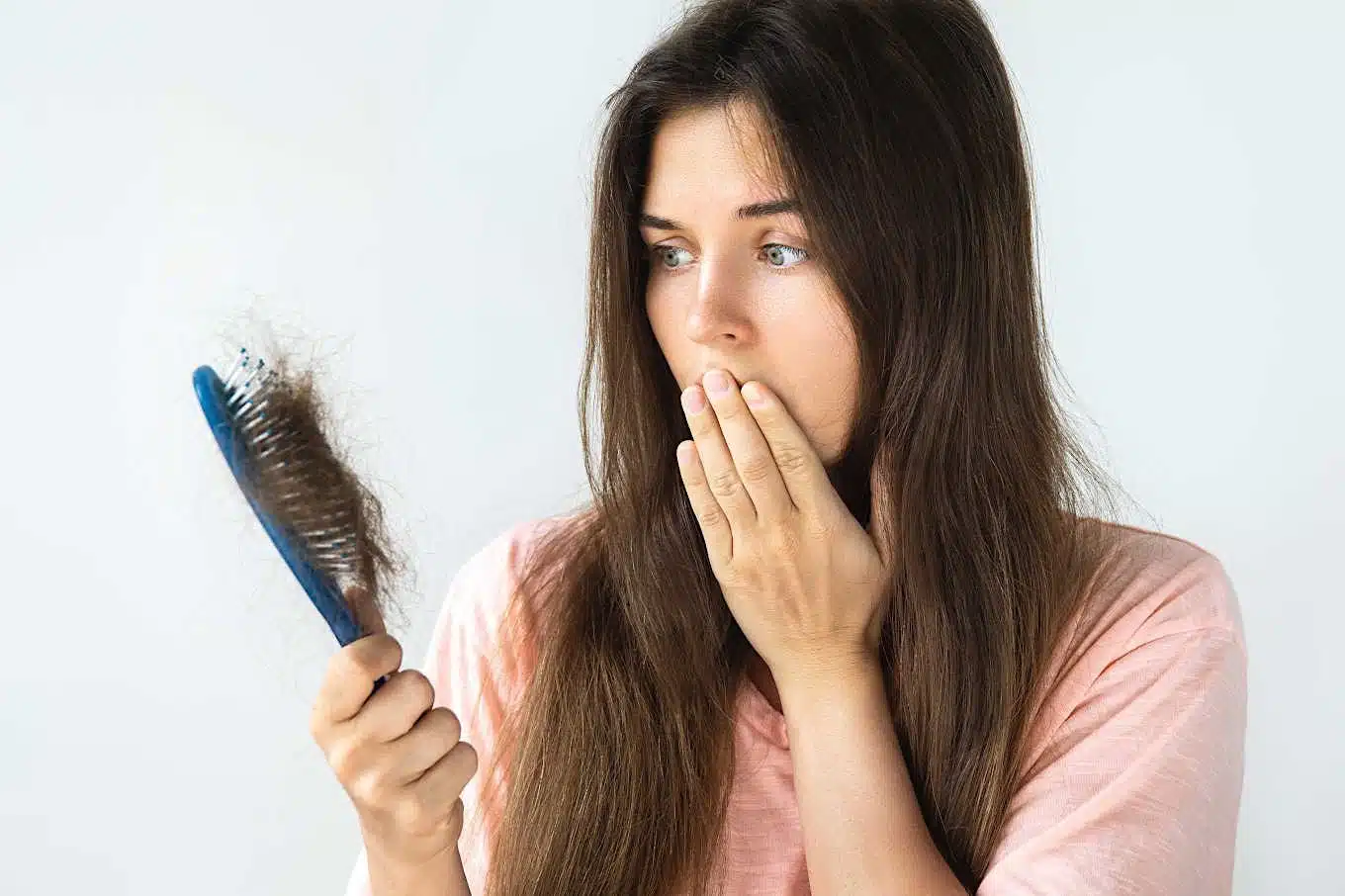Hairstyles February 5, 2024
The Psychology of Hair: How a New 'Do Can Lift Your Mood

Your hair is one of the first things people notice about you. This mane event framing your face speaks volumes before you even say a word.
“Hair is closely entwined with identity,” explains Dr. Monica Wilson, a psychologist who specializes in appearance research. “It conveys social information about gender, age, personality, and mood.”
Intuitively, we know that hair matters. You’ve likely felt an extra spring in your step after a salon visit, or hidden under a hat during a bad hair day. Can changing your hairstyle really provide an emotional boost though? Here’s what psychology and neuroscience reveal about why hair is so central to self-image and mood:
The Science Behind Good Hair Days
In a landmark study on women undergoing major life changes, researchers found that updating hair color and style helped increase self-confidence for weeks. “Making dramatic hair changes helps women emotionally ‘turn the page’ after difficult transitions,” explains Dr. Wilson. “It allows them to redefine their self-image.”
Even a basic trim can provide uplift. Jessica, 28, recently chopped off seven inches of locks she’d been growing out. “I feel lighter and more playful - like I can finally move forward after ending a relationship.” She says the bold change helped her embrace being single.
Psychologists explain that when hair looks shiny and healthy, feel-good neurotransmitters like serotonin flood your brain. “Luscious locks signal youth and vitality on a primal level,” shares Dr. Wilson. No wonder you stand a little taller with fresh highlights or a blowout.
Hair and Self-Image Maintenance
Fluctuating hormones, genes, and stress can wreak havoc on hair though, dulling shine and leaving strands limp. Our culture’s laser focus on female appearances further compounds this angst.
“Women especially see their hair as symbolizing status and personality,” explains Dr. Wilson. Bad hair days mean battling self-consciousness and negative self-talk on top of managing unruly tresses. Even celebrities suffer from the stressful gap between reality and perfection.
So if your hair has become lackluster due to life changes like pregnancy, grief, or job loss, consider a transformation. Embracing waves, bangs, or new parting side could help you reclaim your power.
“Updated hair becomes a visible reminder of self-care,” advises Dr. Wilson. Running hands through an updated lob can reinforce worthy feelings. Changing what you can control helps reduce anxiety around unpredictable transitions too.
Express the True You with Hair
The wonderful thing about hair is its ability to showcase our individuality. “Styles and colors let people self-express gender, moods, creativity, and values through manes,” explains Wilson. Observing client hair changes for 20 years has even revealed personality patterns to her:
- Frequent haircutters crave novelty and change
- Bang-getters may feel compelled by an inner child
- Vivid dyers often prize self-expression and social justice
If you want to attract someone stylish for instance, an edgy undercut signals your values. Seeking new friends with a spiritual bent instead? Unveiling gray hairs conveys letting nature take its course.
Even petite tweaks make a difference. Glasses-wearer Hailey says she feels “playful and smarter” wearing hair half-up. Software engineer Lakshmi feels more empowered wearing long, flowing hair to contrast coding’s rigid rules. Parting your hair differently or pinning it back can reveal other sides of you too.
Bad Hair Hurts, But Support Helps “Traumatic hair events, like drastic cutting against your will, can deeply impact emotions,” warns Dr. Wilson. Bullying, controlling partners, or cultural discrimination amplify pain over lack of bodily autonomy.
In therapy, actively re-styling hair helps assert self-trust and worth again for trauma survivors. Support groups also help both women and men grieve, process feelings, and regain confidence after extreme hair changes due to medical treatments.
Dr. Wilson wants people tormented by their tresses to remember: “While society focuses more on female hair, men wrestle with stands too.” Support plus a skilled stylist can aid anyone struggling with self-image.
The next time you require an emotional salve or creative jumpstart, recall hair’s psychological power. Consider sweeping bangs, honey highlights, a curling iron, or butch buzz. With expert coaching, adjust lengths and hues as desired to reinforce the wonderful person sizzling below the surface. After all, the joy isn’t just in great hair - but feeling comfortable in your own skin and path.
Latest article
- Antoine de Paris: The Pioneer of Modern Hairstyling
- Kristin Ess Unveiled: Your Ultimate Guide to Luxurious Hair Care and Styling Products
- The Psychology of Hair: How a New 'Do Can Lift Your Mood
- Who is Emily Jendrisak?
- Fans in Revolt: Madonna's Tardiness Sparks Outrage and Debate!